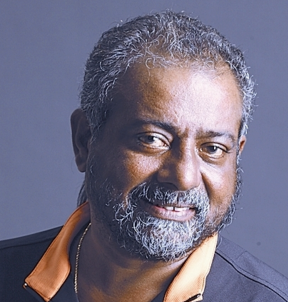
Opinion: Talented M'sians abroad won't return to failed systems
20 Jul 2025 • 11:13 AM MYT

Citizen Nades
A legally qualified journalist and a good governance champion

Image Credit: The Borneo Post
Last week, Deputy Prime Minister Ahmad Zahid Hamidi returned from a five-day lawatan sambil belajarto New Zealand.
It is nothing to be scoffed at because, by his admission, working visits or official visits are valuable opportunities to gain insights and discover areas not yet developed in Malaysia, which can then be explored.
Bernama quoted him as saying: “Sincerity and openness to feedback, and a willingness to learn from other countries should be prioritised, rather than being caught in a cycle of unconstructive criticism.
“If it’s good, ask your friends. If it’s not good, ask your enemies. Enemies are those who dislike us...whatever we do will never be good enough for them. But don’t be arrogant. Don’t be arrogant. Don’t be arrogant.”
Like previous Madani leaders who led rombongan (delegations) overseas, he did not miss the opportunity to meet and ask Malaysian students studying in New Zealand to return home and serve the country after completing their studies.
“I urge you to come home, especially those in engineering, law, and accounting. I know salaries in Malaysia may be lower compared to New Zealand, but remember, east or west, home is best,” he said.
But what is there to come back to? Why should they return to a country where most of the systems have failed or are failing due to poor management?
Why should they come back to a land where meritocracy has been thrown out the window and replaced with an unfair system where race, status, and religion take priority?
Everyone except the government acknowledges that our education system is in shambles, and no effort is being made to fix it. Under such circumstances, will these returning graduates risk their education?
Will they get a fair crack at university places, or will they be relegated to the minority quota based on race?
Seek opportunities elsewhere
No one is opposed to affirmative policies aimed at uplifting those in need. Still, when, for political expediency, politically connected individuals hijack such policies, those who genuinely need assistance are left with the crumbs.
Will they return to equality in the workplace or report to someone junior in terms of qualification, experience, and knowledge, or simply because they are one of the few thousand PhD holders being churned out annually by local universities?
In a previous column, I had advised a friend’s son not to come back to Malaysia. I make no secret of having advised those going overseas to seek opportunities there after graduation.
It would be unfair to be accused of lacking patriotism. It is the realities of life that these young people must be told.
In November last year, I wrote: “Almost all systems in the country are skewed, and the administrators in the government see ethnicity in everything -- from selection and appointments to promotions.
“The government is aware of the large number of Malaysians emigrating, but does not want to address the elephant in the room. Instead, a lot of rhetoric is dished out from the prime minister downwards.
“The promised reforms have been put on the back burner while the country is spiralling to the deep end, with race and religion being the pivotal subjects for political support.
“At every turn, race and religion dominate - not knowledge, skill, or experience. The meritocracy that was promised has been thrown out the window, and nothing - zilch - has changed.”
Eight months later, has anything changed for the better?
Brain drain
The recent promotion of an ethnic Chinese soldier became fodder for politicians to exchange barbs because some quarters believe that those places are “reserved”.
Two weeks ago, DAP senator A Lingeshwaran raised red flags over Singapore’s aggressive recruitment of Malaysian doctors, warning Malaysia risks a deepening brain drain unless urgent reforms are made.
Citing an open interview session to be held in Kuala Lumpur by Singapore’s Health Ministry, he revealed that Malaysian doctors are being enticed with annual remuneration packages of up to RM385,000, plus accommodation and a host of perks.
Again, money may not be the only factor. One doctor I spoke to said he went for the interview “for the sake of my children’s education and better quality of life”.
However, no one seems to care when recruitment teams visit universities in England and other countries to identify talented young Malaysians.
As I had written previously, “At least 1,000 Malaysians are working in London’s financial district, better known as the Square Mile, who are permanently domiciled in the UK.”
Zahid also advised Malaysian students abroad to focus not only on academic matters but also to engage with local communities to foster cross-cultural understanding.
He emphasised that involvement in local communities and understanding their cultures is crucial for nurturing well-rounded and reputable graduates.
Really? But hasn’t the government placed ring fences around certain institutes of higher learning, preventing such cross-cultural understanding by restricting them to one race?
Sir, you must practise what you preach.
Students with straight A’s still do not secure places in universities, and tertiary education has become a battleground for inter-party squabbles and one-upmanship.
Prime Minister Anwar Ibrahim, Zahid, Talent Corp, et al may sound convincing, especially with a rebate on income tax and two tax-free cars. But deep down, the system must change to give confidence to talented Malaysians to return home to serve the country.
Madani has made clear Bumi policy is a Red Line, not on the table for discussion ...
ReplyDeleteSo there is nothing much to talk about